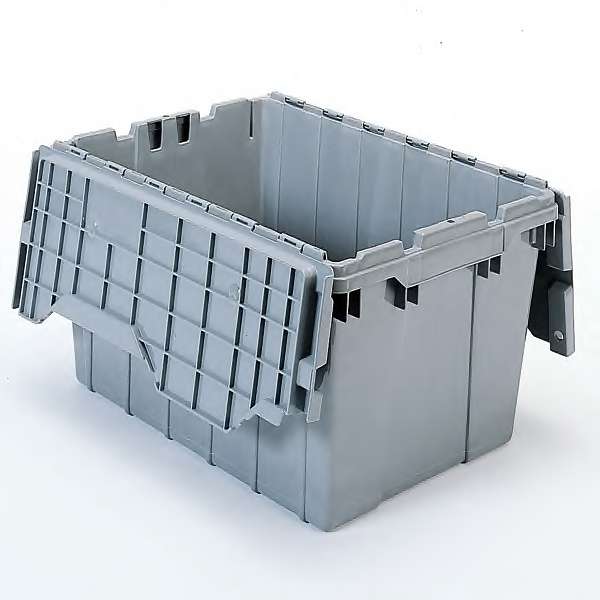 I've gotten a couple of supportive emails about the Family Disaster Plan we've been slowly building, so I'll try to add a section or two every couple of weeks.
I've gotten a couple of supportive emails about the Family Disaster Plan we've been slowly building, so I'll try to add a section or two every couple of weeks.This new section is about supplies. Not necessarily MREs and climbing gear, but re-purposing some basic household items to be used in case of a disaster.
We'll need some bins. Buy your supplies first, stack the items together, then buy bins that will fit your stuff. Don't try to cram stuff into bins after the fact.
First, let's talk water. You will need one gallon of water per person, per day. That means at least 12 gallons for my family. When you get the water home look at howe much space it take up not only in the house, but in the parking lot at the store. Keep this space usage in mind since if you need to evacuate you'll need to bring it along. (Water does not go in the bins)
Next, let's talk food. I recommend one can of food per person, per meal. This means a family of four could share 2 cans of chili a vegetable and a fruit as an evening meal. Include canned foods, nothing that needs to be refrigerated, and things your family will actually eat. The side of the road in the middle of the night is a bad place to try to introduce spaghetti Os to a finicky 3 year old. Check the expiration date on the cans and make sure they'll make it to next year around Christmastime. When they near expiration, replace them and donate them to one of the many canned food drives. Instant karma.
In addition to the cans, we'll need some variety. Add in a box of unsalted crackers, a package of juice popsicles unfrozen (Like OtterPop Brand) and a handful of candies. This will keep the sugar level up and add some yummy flavor for the kiddos. At the store, find some 12oz V8 cans and add 3 per person. This is your breakfast and is also a great source of vitamins.
Avoid pasta, ramen, anything that requires water to cook. You need that water for drinking.
Now, onto the cooking of the food and the sheltering while away. We'll cover how and when to evacuate later, let's get our supplies together first.
Do you go camping? Do you have a tent, camp stove, flashlights, candles and a decent little stockpile of utensils and the like? Then great, you have a disaster kit almost ready to go. Move all you camping things together and into a place that can be easily accessed in a hurry. This will be your home if you need to evacuate. Especially if you are leaving with your pets since many shelters will not accept persons with animals, camping allows you to chose who you bunk with. Re-read the instructions and cautions on your cooking stove to ensure you always use it in an open area.
Just a few more things for our bins. Each bin now gets a can opener, 2 large trash bags, a small box of ziplock bags, a roll of duct tape, a package of baby wipes and an emergency radio/flashlight. You can find a variety of models to choose from, but I recommend one that can run on batteries, solar and dynamo power. It should include a flashlight and radio and some even offer adapters to charge a cell phone. Each bin gets one along with an old cell phone with charger cable. As long as you can transfer your card into the old phone, you're good to go.
If you have really little ones, add formula and a bottle set up to each bin and remember to update the food choices according to age.
There, the basic bins are ready to go. Whether it fits in 2 or 3 or 4 bins, be sure that the supply can be split if needed, one group taking enough for them while leaving enough for others. Store the bins so they are easily accessible, maybe with the camping gear and you'll have everything you need in the same place.
Write down what items are in each bin with their expiration dates and place it in the binder in the back. Update it every year before the holidays along with the photos on the front page.
Not sure what I'm talking about? See where this all started at our first adventure into Disaster Planning HERE, ans follow up HERE to learn even more.
Next time we'll talk about when and why to evacuate. Until then, be prepared.


Comments
By the way I like the new look.
http://www.providentliving.org/channel/0,11677,1706-1,00.html
So just need todo the rest and sort out living wills, advanced directives and all my finances into one place then hey presto, you've sorted my life out!!
And thanks, LT, I often consider myself linked, but never know exactly how. :)
BTW, don't forget to allow for your pets. Hopefully you can take them with you and then you you need to be able to feed and take care of them.
My word verification is "mother". Seems appropriate HM, you are always taking care of us.
Lastely, be sure and keep an eye towards any medical issues. Epi-pens are the main thing I'm thinking of here, but adding some specific medication to a generic first aid kit is also a good idea.
I keep some bins, a duffel, and a backpack ready for emergencies. There are some things that are in all of them, so that I will still be ok if I can't grab everything or lose some of it.